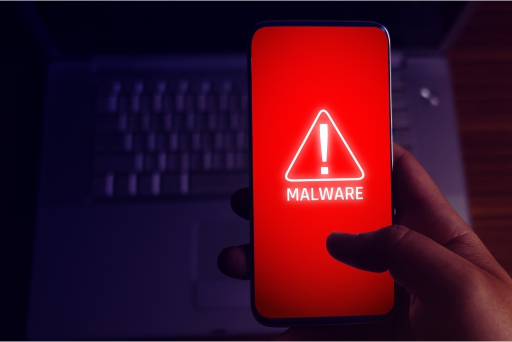
Malware is a term used to refer to malicious software that infects mobile phones and personal computers. The funny fact about malware is that you can have them on your PC or mobile phone and have no idea of their presence.
Malware is installed on a device when a user downloads a malicious attachment, clicks a link, or opens a suspicious software program. Attackers can steal personal and financial information, use your device to hack others or monitor your online activities.
If Malware can exist on your device without your knowledge, how can you get rid of them when you eventually find out? Here are simple tips that you can apply in dealing with malware on your device or PC.
- Avoid Clicking On Suspicious Links And Attachments
Since most malware will get into your device through a website or online platform, you might want to become more careful with the links you click and the sites you enter. Hackers can install malware into your device when you click on links from suspicious sources, primarily through phishing.
Phishing deceives folks into clicking links that may seem from a well-known business or platform. The link will most likely direct you to an illegitimate website that will suggest that you input personal details like emails or infect your device with malware directly.
Companies like Tezza that are involved in application development and software testing will advise that you pay attention to sites that require you to release your details a lot. Once it looks funny and suspicious, do not click!
- Install An Anti-virus Software
A good and highly effective way of keeping malware off your devices is by installing anti-virus software. Good anti-virus software will make the difference between a device full of malware and one free of it. It will search your device for any malware and clean it up.
It will also deliver automated updates to improve protection against recent viruses. In essence, anti-virus software will serve as the first wall of defense against any form of malicious software that threatens the safety of your device.
- Download Or Buy Apps From Trusted Sources Alone
The internet is full of illegal websites and platforms. The possibility of infecting your device with malware is higher, so it’s best if you keep all your internet dealings tied to strictly trusted sources.
Most big brands and trusted sources will make extra efforts to ensure that their reputation does not experience damage because of malware distribution via their products.
- Update Your Software As Often As Possible
Another tip that, when combined with anti-virus software, will boost the protection status of your device is regular updates. Older or outdated versions of your device or PC are bound to be more vulnerable to attackers than newer versions.
Updating the software of your PC or mobile device will significantly reduce the chances of them experiencing an infection of malware.
- Install A Firewall As Soon As Possible
Using a firewall can serve as a good form of protection in addition to anti-virus software. Why? It becomes a barrier against malware attacks and prevents malware infiltration by shutting off unauthorized entry from or to a network.
A firewall protects your data, regulates network traffic, and restricts access by scrutinizing incoming traffic for any threats.
- Back Up Your Data On All Devices
Backing up data doesn’t prevent or stop malware from causing havoc to your device. It only serves as a precautionary measure for the recovery of your data. Backing up your device’s data makes it possible to retrieve and recover all your important data if there is a case of malware attack.
Conclusion
The safety of your device or PC should be a primary concern and should be put up with very seriously. Keeping your devices safe will protect not only your data but also your assets.
At Tezza, we pay close attention to anything that involves the tech needs of a company or individual, and we are willing to assist you in whatever way we can. Kindly reach us for inquiries about our services and how best we can help you!
